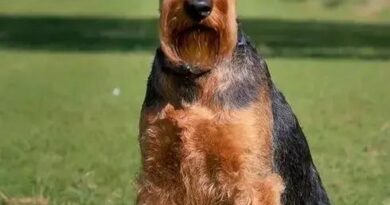What is Underweight Dogs
What is Underweight Dogs?
Underweight dogs are those that weigh significantly less than the ideal weight for their breed, age, and size. This condition can lead to various health issues, including weakened immune systems, nutritional deficiencies, and decreased energy levels. Understanding the factors that contribute to a dog being underweight is crucial for pet owners who want to ensure their furry friends are healthy and happy.
Causes of Underweight in Dogs
There are several reasons why a dog may be underweight. These can include poor diet, underlying health conditions, parasites, and stress. A lack of proper nutrition can result from feeding low-quality food or not providing enough calories for a dog’s energy needs. Additionally, medical issues such as diabetes, cancer, or gastrointestinal disorders can prevent a dog from gaining weight effectively.
Signs of Underweight Dogs
Identifying an underweight dog can be done by observing several physical signs. A noticeable ribcage, prominent spine, and a lack of body fat are common indicators. Additionally, an underweight dog may have a dull coat, lethargy, and a decreased appetite. Regular vet check-ups can help monitor a dog’s weight and overall health, making it easier to spot any concerning changes.
Health Risks Associated with Being Underweight
Underweight dogs face numerous health risks that can impact their quality of life. These risks include a weakened immune system, which makes them more susceptible to infections and diseases. Furthermore, underweight dogs may experience muscle wasting, organ dysfunction, and a reduced ability to regulate body temperature. Addressing the issue promptly is essential to prevent long-term health complications.
How to Help an Underweight Dog
If you suspect your dog is underweight, the first step is to consult with a veterinarian. They can help determine the underlying cause and recommend an appropriate treatment plan. This may include dietary changes, such as switching to a high-quality, calorie-dense dog food or incorporating supplements to boost nutrition. Gradually increasing food intake can also help your dog gain weight safely.
Feeding Strategies for Underweight Dogs
When feeding an underweight dog, it’s important to implement effective strategies to encourage weight gain. Offering smaller, more frequent meals can help stimulate appetite and ensure better digestion. Additionally, incorporating high-protein and high-fat foods can provide the necessary calories for weight gain. Always monitor your dog’s progress and adjust feeding routines as needed.
Monitoring Weight Gain Progress
Tracking your dog’s weight gain is crucial in determining the effectiveness of your feeding strategy. Weigh your dog regularly and keep a log of their progress. If your dog is not gaining weight as expected, consult your veterinarian for further advice. They may recommend additional tests or adjustments to the diet to ensure your dog is on the right path to achieving a healthy weight.
Preventing Underweight Issues in Dogs
Preventing underweight issues in dogs involves providing a balanced diet, regular exercise, and routine veterinary care. Ensure your dog receives high-quality food that meets their nutritional needs, and monitor their weight regularly. Additionally, maintaining a healthy lifestyle with regular physical activity can help keep your dog in optimal condition, reducing the risk of becoming underweight.
When to Seek Veterinary Help
If your dog shows signs of being underweight, it’s essential to seek veterinary help promptly. A veterinarian can perform a thorough examination, run necessary tests, and provide guidance on the best course of action. Early intervention can make a significant difference in your dog’s health and well-being, ensuring they receive the care they need to thrive.



